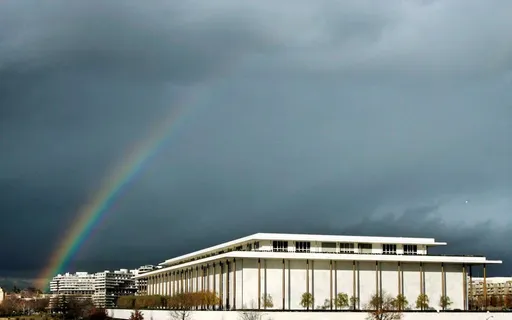The Japanese city of Nagasaki on Tuesday marked 71 years since its destruction by a US atomic bomb that was dropped on it on August 9, 1945.
In a ceremony to remember the victims of the deadly nuclear blast, Nagasaki Mayor Tomihisa Taue lauded a visit by US President Barack Obama to Hiroshima earlier this year. Obama was the first incumbent US president to visit Hiroshima.
"Knowing the facts becomes the starting point for thinking about a future free of nuclear weapons," Taue said, calling on other world leaders to visit his city.
Thousands of people, including ageing survivors and relatives of victims, observed a minute's silence at 11:02 am (0202 GMT), the exact moment of the blast.
Fat Man
On August 9, 1945 the US dropped a plutonium implosion-type bomb (Fat Man) on Nagasaki.
Some 74,000 people died in the initial explosion, while thousands of others perished months or years later from radiation-related sickness. The attack came three days after the US dropped the first-ever atomic bomb (Little Boy) on Hiroshima, which ultimately killed over 140,000 people.
Japan's post war pacifism
Local officials and those who survived the bombing called for strict adherence to Japan's post-war tradition of pacifism and were critical of the Japanese government.
Japanese Prime Minister Shinzo Abe, in his address in Nagasaki, called on world leaders to honour the global Nuclear Non-proliferation Treaty.
"We must not allow a repeat of the horrible experiences of Hiroshima and Nagasaki that happened 71 years ago," Abe said.
"As the only country to be bombed by atomic bombs during wartime, I will strongly advocate the importance of maintaining and strengthening the stance of non-proliferation of nuclear weapons, while maintaining the three non-nuclear principles," the prime minister said.
"The government of Japan, while advocating nuclear weapons abolition, still relies on nuclear deterrence," the Nagasaki mayor said, calling it a "contradictory state of affairs".
Abe has moved to extend the scope of Japan's military and deepen the nation's alliance with Washington in the face of threats from China's expanding military strength and an unpredictable North Korea.
Hiroshima mayor Kazumi Matsui on Saturday marked the commemoration of the bombing of his city, also citing Obama's visit. He said the visit was proof the US president shared his city's view of the "absolute evil" of nuclear weapons.
























